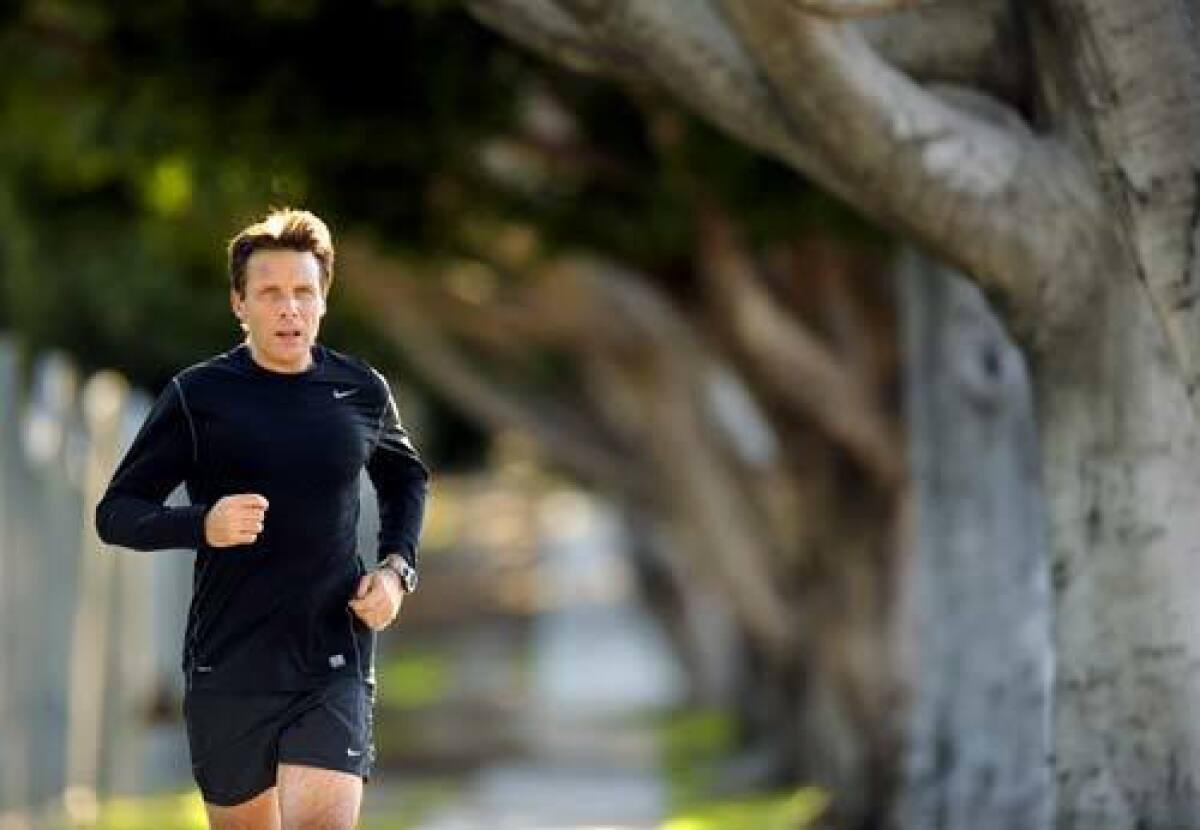Motivation to run a marathon

On Sunday, more than 24,000 people will run the 26.2 miles of the L.A. Marathon from Dodger Stadium to Santa Monica — a good chunk of them first-timers. Without knowing quite what they were getting into, they’ve trained for weeks and pushed their bodies to the limit. Their reasons are as varied as L.A.’s neighborhoods. Some have had the race on their bucket list; others will run in remembrance of a loved one, as a weight-loss regimen or to fulfill a bet.
Does the inspiration matter? Yes.
Good training is essential, helping runners get through fatigue, pain and bad weather. But when marathoners hit the wall and the finish line is still several miles away, they’ll have to tap into something within themselves to keep going.
An estimated 10% to 15% of L.A. Marathon registrants never complete the race, race officials say. True, some don’t bother to show up on race day, but others start and give up along the way.
This is where motivation comes into play. Some motivation comes from within. Known as intrinsic, or internal, motivation, it’s fueled by joy in the activity, like running, or in the sense of accomplishment that results. Extrinsic, or external, motivation comes from outside factors, such as wanting a medal or accolades from friends.
For a marathon, put your money on the intrinsic kind, say sport psychologists.
“If [running a marathon] is not intrinsically valuable — something that’s a sense of pride and self-satisfaction — it’s going to be very, very difficult to do what you have to do to get to the end,” says Kristen Dieffenbach, assistant professor of athletic coaching education at West Virginia University and a sport psychology consultant.
That doesn’t mean marathoners should become giddy at the thought of pounding the city streets for hours on end — motivation is often colored in shades of gray. Take the bucket list, for example, an often-cited reason that’s become even more popular as marathon participants have grown in numbers (last year’s L.A. Marathon enrollment was about 17,000).
“If the bucket list is to impress other people and get their validation, then it’s extrinsic,” Dieffenbach says. “But if it’s about you and accomplishing something in your life, then it’s intrinsic. Very few things are cut and dried, but at the end of the day, the majority of the day has to be intrinsic for something to be sustainable.”
Some research supports this. A study presented at a 2006 meeting of the American College of Sports Medicine found that motivation may be an essential factor in whether a runner finishes a marathon. Researchers asked 106 first-time marathoners of both genders why they were running. Motivation was measured and assessed by type — such as the desire to improve self-esteem, develop better coping skills, lose weight or achieve personal goals.
Only 31 people finished the training and the race. The 75 who did not finish were those most likely to have been motivated by the wish to lose weight or gain recognition from others.
Even if a runner initially decides to do a marathon for the medal bling, that may change before he or she crosses the finish line, says Kate Hays, a Toronto-based psychologist specializing in sport psychology.
“People may start to run for reason ‘A’ and eventually discover reason ‘B,’ ” she says. “Reason ‘B’ is the one that keeps them going. The most typical example is that someone starts to run in order to lose weight, but then they discover they love running in and of itself and appreciate the mental and physical health benefits they get from it, and that’s the motivation that helps them continue.”
Sometimes, people run for a loved one who is sick or who has passed away or because they’re raising money for a charity. That can ratchet up the pressure to go the distance.
“They need to go into the race thinking, ‘I’m not finishing the race for Mom, I’m doing the race for Mom,’ ” Dieffenbach says. “Finishing is icing on the cake. It’s not a failure not to finish; it’s a failure not to try.”
The four people profiled here tell why they decided to run a marathon for the first time. We’ll catch up with them after the event to see how they did.






